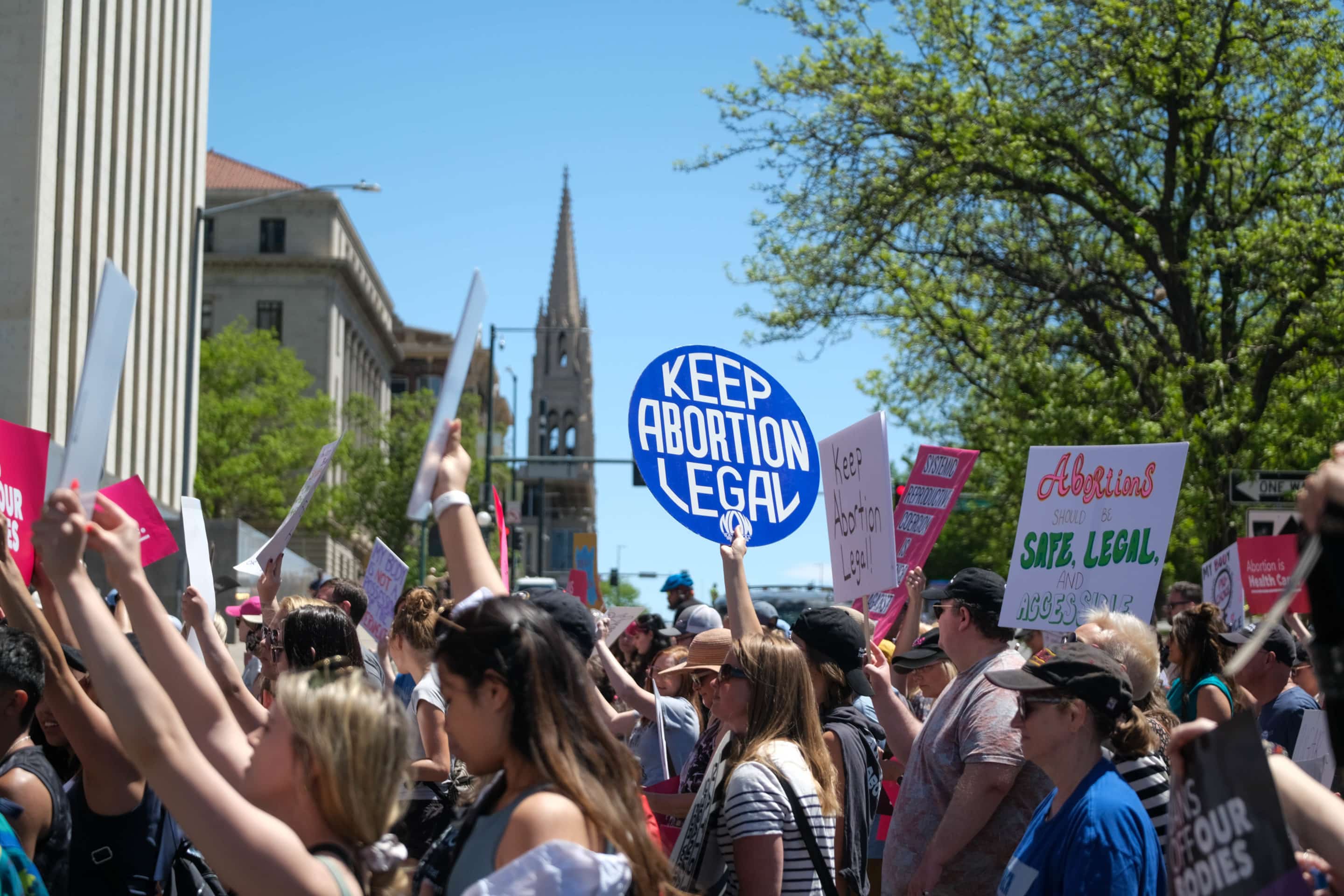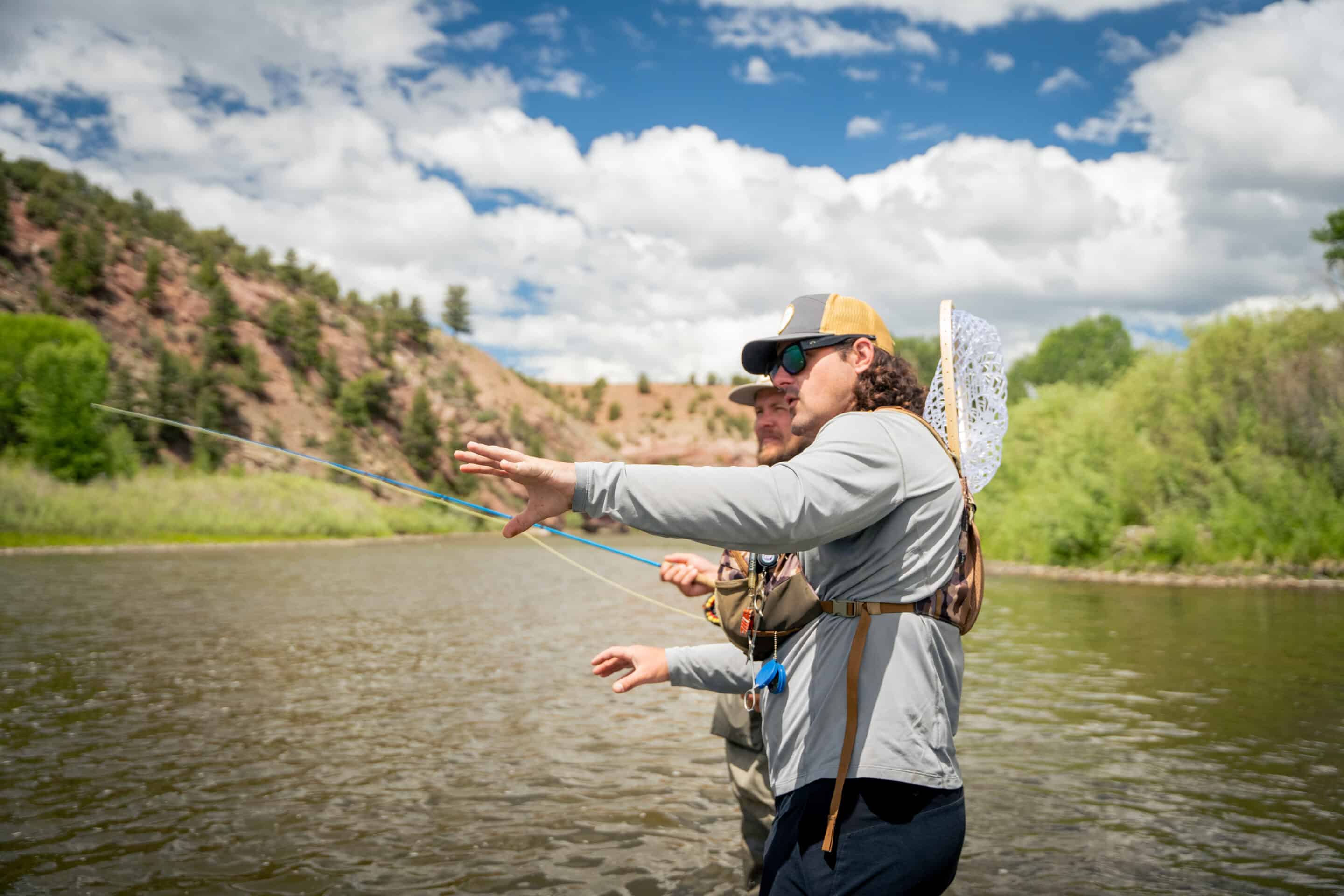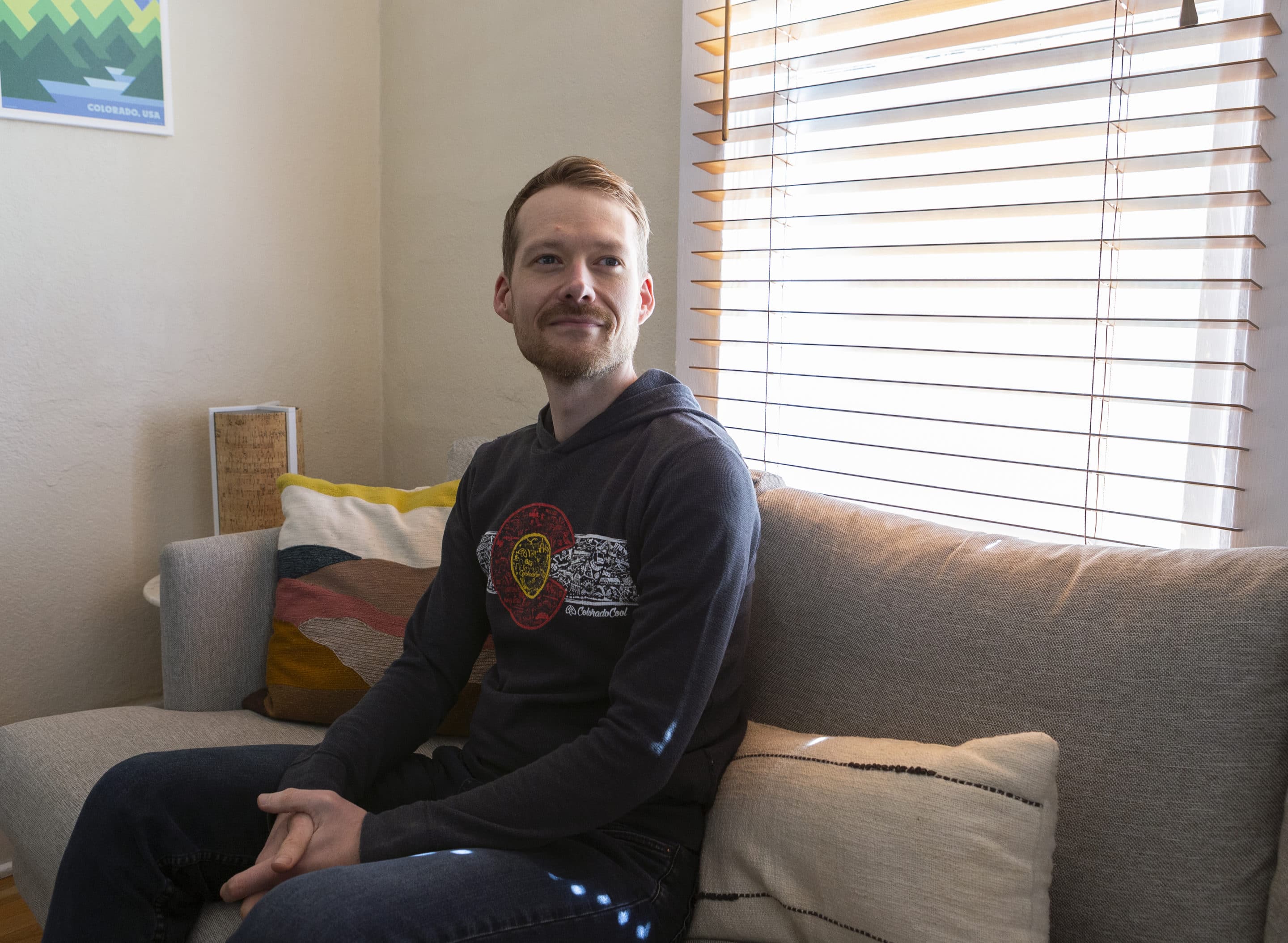//Protesters march near Trinity Church in Denver on May 3, a day after the draft opinion overturning Roe v. Wade was leaked. Photo by Esteban Fernandez | [email protected]
On hearing the most pervasive abortion myths, Dr. Kristina Tosse sighs. No, the evacuation of an ectopic pregnancy is not an abortion. Yes, abortions can save the lives of pregnant people. Even questions reflecting an anti-abortion perspective can perpetuate a misconception. When asked if abortions can take place at any point of pregnancy in Colorado, she replied, “That is just not how abortion is treated.”
From her office at Planned Parenthood of the Rocky Mountains in Denver, where she works as the Vice President and Medical Director, she presents the stories she knows from experience.
“Someone has a diagnosis of a recurrent cancer and they’re dealing with that diagnosis and the emotional impact of that,” Tosse said. “They can’t obtain their chemotherapy and their radiation while pregnant so they’re seeking abortion care for life-saving cancer treatment to be alive and take care of the children they already have.”
Sighing again, she offered a scenario that occurs in 8-10% of pregnancies: A patient has a premature rupture of the amniotic membrane at a stage where the fetus is not viable, but the patient is not hemorrhaging blood. In Colorado, the rupture can be addressed immediately before it becomes life-threatening. In Oklahoma and Texas, either the patient must wait for sepsis to set in or find their way across state lines—putting the patient at significant risk of dying.
“If you wait for the patient to get infected and have sepsis, which is what happens when abortion is restricted, patients die,” Tosse said.
What else is true is that much of the future of abortion law is unknown. Will medical professionals in states like Utah be forced to report suspected abortions? Could patients be prosecuted for traveling across borders? When exactly is a pregnant person’s life at risk?
Planned Parenthood of the Rockies is just one member of the Colorado Reproductive Health, Rights and Justice Coalition, which has fought for abortion rights long before Roe v. Wade was overturned on June 24. In the week following the ruling, states surrounding Colorado have fallen to trigger bans as the people protected by the coalition have expanded. But what has remained the same is the coalition’s battle against abortion myths.
“There’s a lot of gray and ambiguity,” Tosse said. “The only outcome of that ambiguity is harm to patients because it puts barriers in the way of appropriate medical care. As a physician, I just cannot comprehend being faced with that.”.
Four days after the ruling, three members of the coalition held a rally on the steps of the Colorado State Capitol building. Planned Parenthood of the Rocky Mountains, Cobalt and Colorado Organization for Latina Opportunity and Reproductive Rights, or COLOR, stood together once again in support of the right to an abortion.
“I think it’s important that people take to the streets because that visual representation and presence of strength from community is really what’s going to move representatives and leaders but also other folks that may not necessarily have thought that reproductive rights and fundamental freedoms such as bodily autonomy were really in peril,” said COLOR Strategic Communications Manager Aurea Bolaños Perea.
COLOR along with Cobalt co-sponsored the Reproductive Health Equity Act which was signed into law in April by Gov. Jared Polis. The bill ensures access to contraceptives and abortions by codifying protections for reproductive healthcare into state law. Both organizations said they were preparing for the potential overturn of Roe. Bolaños Perea said one of the most pervasive and dangerous myths before June 24 was that the precedent created by Roe was invincible.
“For the Latinx community, we’ve known this was going to happen,” Bolaños Perea said. “Our community members have lived in the reality where the access to healthcare has not been a right they’ve been afforded.”
COLOR focuses on advocacy for reproductive rights along with the expansion of access and awareness. The organization’s radio show Mujeres de COLOR reaches rural, Latinx communities in Colorado’s abortion deserts and seeks to cut through the noise of misinformation. Currently, Bolaños Perea is focused on pregnancy crisis centers. These centers are most prevalent in rural communities and while they present as providing abortions, they do not.
During the June 28 radio show, a woman called in to share her experience visiting what she thought was an abortion clinic. Instead of receiving an abortion, she left with pamphlets on adoption and guilt. The woman eventually found the care she was seeking and left the show with a word of caution against deceit.
Bolaños Perea says she’s seen similar misleading claims on social media through posts mistakenly listing pregnancy crisis centers and even COLOR as abortion clinics. She urges those new to the fight for reproductive rights to go to the pages of organizations that have been in the arena for decades. Not only does COLOR have factually accurate information, but it also promotes what Bolaños Perea calls equitable and culturally responsive care to protect all Coloradans seeking an abortion.
“This isn’t a wake-up call,” she said. “This is just a reaffirmation that we have always been on the chopping block for the justice system, for the criminal [justice] system, for the healthcare system and beyond.”
Bolaños Perea is clear: Even though abortion is protected in Colorado, that doesn’t mean barriers don’t exist. Before the overturning of Roe, COLOR and Cobalt focused on those in abortion deserts like Baca and Gunnison counties. COLOR helped coordinate care, while Cobalt provided funds. Post-Roe, it is expected Colorado will be a solitary oasis in a vast abortion desert. This leads to another popular misconception about abortion access. Even in states where the procedure is legal, practical barriers exist—driving long distances to a clinic, acquiring time off and finding a reliable vehicle.
“Even in states that are considered high access or receiving states like we’ve been called in Colorado, the legality doesn’t mean accessibility,” said Cobalt Abortion Fund Director and Senior Policy Associate Amanda Carlson.
That’s where Cobalt’s Abortion Fund steps in. With the current cost of gas, to drive from Texas can cost $1000. The fund can cover that expense along with a hotel room and pizza.
Additionally, legislative barriers still exist in Colorado: The Colorado Parental Notification Law and a ban on using state funds for abortion care. The former requires that underage people inform their parents if they obtain an abortion; the latter requires those on Medicaid to pay out of pocket for abortions, costing $500-$1000.
Cobalt’s Abortion Fund covers these costs with donations that they say have been pouring in for the last week. While the fund provides financial triage to those seeking sanctuary, Cobalt is looking ahead to the larger war for reproductive rights.
With a gubernatorial race looming in November and a bill to ban abortion in the state up for a vote, they are asking their supporters to be meticulous with the accuracy of the information they share.
“We’ve had a lot of conversations with even people who are with us on the usage of coat hanger imagery because it’s fear-provoking and it’s not helpful,” Carlson said. “I think that education piece is really important, not just on the political side, but making sure people know that they can get pills in the mail in our state. They don’t necessarily need to drive six hours to a clinic.”
Cobalt’s Strategic Communication Director Jaki Lawrence suggested abortionfinder.com or Ineedana.com if people are in search of abortion care. She also asks that people think twice before reposting.
“It’s so easy to share that viral tweet,” Lawrence said. “So be really intentional about what you’re resharing and make sure that it’s accurate, especially when you’re talking about anything related to where abortion is or is not legal right now.”
Lawrence urges supporters to not add to the morass of falsities. She thinks outright lies, misinformation and deceit were first used in the abortion debate because the facts prove that abortion is safe and supported by the majority of Americans. Cobalt President Karen Middleton said before Roe was overturned, she was called a “baby murderer” by anti-choice believers. Conversely, she felt gaslit by pro-choice advocates who thought that what was once a right, would always be so. In the last week, she has had one less myth to contend with.
“The myth that I was hearing when I began running this organization back in 2013 was that Roe v. Wade would never go away and we don’t need to worry our pretty little heads,” Middleton said.
To the detriment of millions of people across the country, that myth has been debunked.
Enjoyed this story? Help us keep the lights on! Supporting local press ensures the stories you want to read keep coming, become a member for free today! Click here.





0 Comments